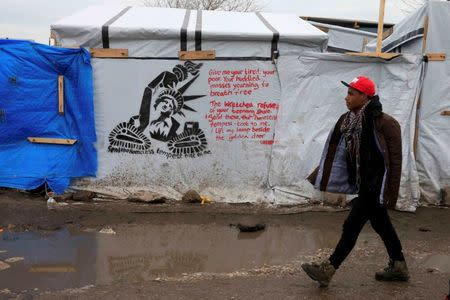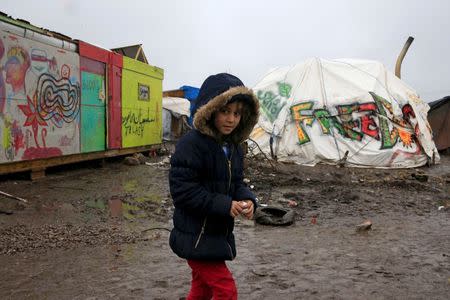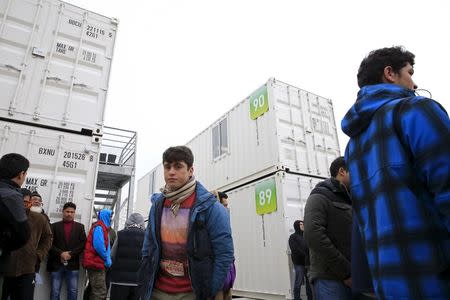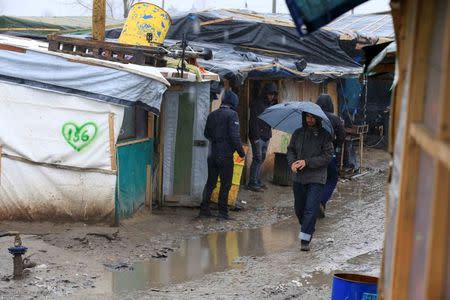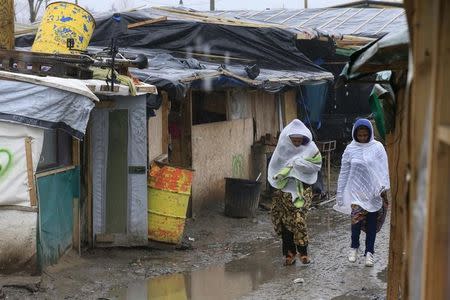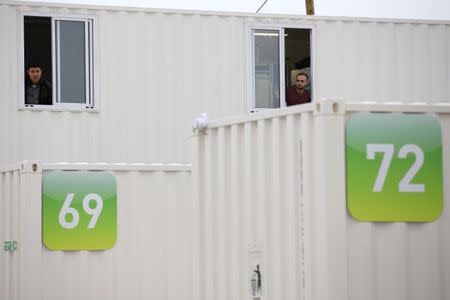French judge defers ruling on Calais migrant 'jungle'
By Matthias Blamont LILLE, France (Reuters) - A French judge deferred a ruling on Tuesday on a government plan to partially demolish a shantytown outside Calais for migrants trying to reach Britain, in response to an appeal by activists and residents. "The decision will not be taken today," Judge Valerie Quemener of the administrative court in the regional capital Lille said after hearing arguments from lawyers for both sides. "Judicial time is not the same as media time." She did not say when the ruling would be issued. Belgium meanwhile announced it was stepping up random checks at its nearby border in anticipation of the clearance of the so-called "jungle" near the northern French port. The French interior ministry, keen to defuse tension with the local population and reduce a large police presence around the entrance to the Channel Tunnel, had given residents of the camp until Tuesday evening to leave or face forced evacuation. Thousands of people have converged on Calais over the past year, trying to reach Britain where most want to resettle. London has refused to admit any, arguing to do so would merely attract more migrants. Many have tried to force their way into the Channel Tunnel or stow away aboard goods trucks. Ten humanitarian organisations and 250 residents of the camp had appealed to the tribunal, arguing forced evictions would be a breach of their fundamental rights. In Brussels, Belgian Interior Minister Jan Jambon told a news conference he was increasing controls along the French border with 250 to 290 police officers to avoid migrants choosing Belgium as an alternative transit point for Britain. "We already see movement of migrants from Calais towards our country," he said. "Once the camps in France are cleared, we could potentially see thousands." JUNGLE TOUR Earlier on Tuesday, the judge toured part of "the jungle" to examine living conditions, the evacuation plans and alternative accommodation readied by the authorities. She viewed the jumble of tents and wooden shacks and was shown plans for the partial dismantling as well as a site meant to accommodate some of the evacuated migrants in converted shipping containers. Refugees living in the south part of the camp were ordered last week to leave the area before 8 p.m. (1900 GMT) on Tuesday after which authorities will be empowered to remove remaining tents and trash, if necessary by force. The interior ministry says the move will affect 800 to 1,000 people but local activists said at least 3,400 migrants, including women and young children, will have to clear the area. There was little sign of anyone preparing to move out of the southern part of the camp. "There are more than 3,000 people who are living here, we have schools here, mosques, everything inside the 'jungle'. So it becomes like a small city and they (authorities) want to end this," Sikender, from Afghanistan, told Reuters. Altogether some 4,000 people are believed to live in the "jungle", down from some 6,000 in December. The authorities would like to see the number fall to around 2,000. The container park opened last month has a total capacity of 1,500, along with an existing building intended to accommodate some 500 women and children. (Additional reporting by Robert-Jan Bartunek in Brussels; Editing by Paul Taylor and Katharine Houreld)
